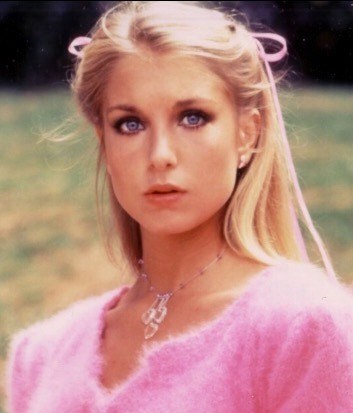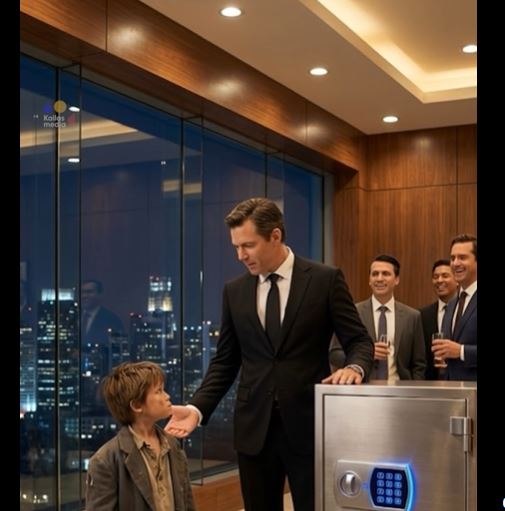Heather Thomas, who celebrated her 66th birthday on September 8, was once on the brink of Hollywood stardom. Best known for her role as Jody Banks in the hit 1980s action series The Fall Guy, she seemed destined for a long and successful career in the entertainment industry. However, her path soon took an unexpected turn—one that would reshape her life forever.
After the series finale, an event unfolded that changed everything. Thomas’s mother arrived on set with unsettling news: her father, Leon, had been hospitalized. Rushing to the hospital, she was relieved to find him stable, but the visit became a defining moment for her. Her family’s concern wasn’t just for her father—they were deeply worried about her well-being. It was then that Thomas began to confront the realities of her struggles and embark on a journey of transformation.
From an early age, Thomas was drawn to the spotlight. With her striking beauty and undeniable talent, she stood alongside icons like Farrah Fawcett and Heather Locklear. At just 14, she hosted NBC’s Talking with a Giant, where she and four other teens interviewed celebrities. By the time she graduated from UCLA with a degree in film and theater, she had already secured roles, including in the short-lived comedy Co-Ed Fever (1979). Her ambitions were clear—she wanted to act, direct, and write.
In 1980, Thomas landed her breakout role on The Fall Guy, starring opposite Lee Majors. As Jody Banks, a stuntwoman-turned-bounty hunter, she quickly became a fan favorite. Her popularity soared, but with it came the label of a sex symbol—a title she had mixed feelings about. “There’s an obligatory condescension that comes with that,” she once admitted. “You fit the blonde bimbo stereotype. At that time, I was having fun.”
Behind the glitz and glamour of Hollywood, however, Thomas was battling a deepening addiction. Her struggle began in middle school with medication to enhance her academic performance and escalated during her UCLA years when she turned to recreational drugs, including cocaine. By the height of The Fall Guy, her dependency had worsened. Determined to maintain her appearance, she relied on Lasix, a diuretic that made her drowsy, and counteracted it with cocaine. “I honeymooned with the medication,” she confessed. “I felt I got good value. It let me stay up all night and work the next day.”
Her substance abuse soon became impossible to ignore. Industry insiders took notice, and concerns about her health mounted. Reports surfaced of her fainting spells on set, and one alarming incident led Lee Majors to contact her manager, who in turn reached out to her mother. Thomas’s weight plummeted, and she often described herself as being in a “minicoma” between takes.
Following The Fall Guy, her family staged an intervention. With the help of her mother, Gladdy Ryder, she checked into a three-week drug treatment program at St. John’s Hospital. The experience was a wake-up call. “It was a big relief,” she later said. “I wanted to get off a roller coaster. Without my family’s intervention, I probably would have continued until I lost my job or died.”
Determined to rebuild her life, Thomas found solace in recovery groups and, in 1984, married Allan Rosenthal, co-founder of Cocaine Anonymous. Though their marriage ended in 1986, her journey to healing continued. That same year, she suffered another setback when she was struck by a car while crossing the street, injuring both legs. Despite the injury, she returned to acting, taking roles in Cyclone (1987) and Red Blooded American Girl (1990), alongside Christopher Plummer.
In 1992, she remarried entertainment lawyer Skip Brittenham and embraced her new role as a mother. She gave birth to her daughter, India Rose, in 2000, and became a stepmother to Kristina and Shauna. During this period, she transitioned away from acting, focusing instead on writing and activism. She became an advocate for social causes, serving on the boards of the Rape Foundation and the Amazon Conservation Team.
Reflecting on her past, Thomas spoke candidly about the pressures of fame. “When I was young, I did what others told me, but as I got older, I didn’t compromise,” she said. “For power and freedom, this provided me a house and the fame to enter. Showing your body is fine. Don’t think I betrayed myself. Feminists shouldn’t be ashamed of their bodies.”
However, fame came with dangers. She faced threats from obsessive fans, leading her to file multiple restraining orders. “I was stalked. One man climbed the barrier with a knife. I had two tiny children that required raising, so that was it,” she explained. Prioritizing her family’s safety, she stepped away from the limelight.
Though she briefly returned to acting in 2017 with Girltrash: All Night Long, Thomas has since dedicated herself to her family, activism, and personal recovery. Her journey—from Hollywood’s bright lights to the depths of addiction and back—serves as a testament to resilience. While her acting career may have slowed, her influence endures, reminding us of the strength it takes to face adversity and emerge stronger on the other side.




